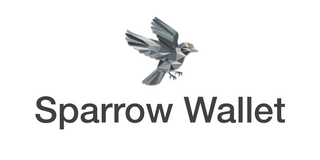7 Best Crypto Wallets of February 2026
Blockchain technology has made digital currency transactions increasingly accessible. However, as the number of crypto traders has gone up, so have the rates of theft and fraud related to cryptocurrencies. That’s why it’s important to understand how crypto works, how it's stored and what to look for in a crypto wallet — whether it’s digital or physical.
What to know about crypto wallets
- A 2025 Gemini survey across six major markets found that 24% of adults now hold crypto — up from 21% in 2024. That’s tens of millions more people who could use a crypto wallet.
- Crypto wallets come in two versions: hot, which are available as software or web-based apps, and cold, most of which are physical devices.
- Active stablecoin wallets jumped 53% year over year, from nearly 19.6 million in February 2024 to 30 million by February 2025. This shows a major shift toward using wallets for payments and savings, not just speculation.
- Modern crypto wallets are becoming “superapps,” with an increasing number of features that include bundle swaps, staking, bridging, quests and decentralized app discovery.
Some people searching for crypto wallets are actually looking for a crypto exchange. If you’re more interested in learning where to buy and sell cryptocurrency without a crypto wallet — as well as the difference between centralized and decentralized exchanges — read our piece on the Best Crypto Exchanges.
How we chose our top picks
Our team of writers and editors has spent years researching crypto wallets. After reaching out to experts and gathering information from authoritative sources, we identified over 30 key data points for evaluating crypto wallets, including security ratings and audits, Web3 compatibility, crypto staking options and supported coins.
Read our full methodology to learn more.
Our top picks for the best crypto wallets
- Exodus - Best Crypto Wallet Overall
- Zengo - Best Crypto Wallet for Beginners
- Sparrow - Best Crypto Wallet for Bitcoin
- Trust Wallet - Best Mobile Crypto Wallet
- MetaMask - Best Web3 Wallet
- Trezor Model One - Best Entry-Level Hardware Wallet
- Ledger Nano Flex - Best High-End Hardware Wallet
- Support for assets across 50+ blockchain networks
- Native integration with Trezor hardware wallets
- High security marks across the board
- Crypto swapping directly in app
- No control over exact transaction fees
- Lacks public third-party audits
- Platform(s)
- Android, Brave, Chrome, iOS, Linux, Mac, Windows
- CER Security Rating
- AAA
- CertiK Skynet Score
- 85.83 (A)
Why we chose it: Exodus is an excellent option for a variety of investors — particularly for those managing diverse portfolios — thanks to its broad asset support, thousands of trading pairs and built-in crypto swapping. The wallet’s ease of use across platforms and consistently high marks for security add to this, making it a reliable choice regardless of your goals.
Learn more by reading our full Exodus review.
- No seed phrases or private keys
- Round-the-clock customer support
- Intuitive, user-friendly interface
- Straightforward setup process
- Low number of supported networks
- High fees on in-app exchange
- Platform(s)
- Android, iOS, Web
- CER Security Rating
- AAA
- CertiK Skynet Score
- 85.38 (A)
Why we chose it: Zengo removes much of the complexity that typically comes with crypto wallets by eliminating complex seed phrases and private keys, replacing them with multi-party computational (MPC) cryptography, a keyless security model. The platform’s appealing design further adds to its beginner-friendly appeal, as does its 24/7 live customer support and streamlined setup process, which help quickly onboard new users.
Learn more by reading our full Zengo wallet review.
- Lightweight, multi-platform desktop wallet
- Support for all common hardware wallets
- Comprehensive transaction editor
- Several server connection options
- Requires understanding of bitcoin fundamentals
- No native token swaps or fiat onramps
- Only available on desktop devices
- Platform(s)
- Linux, Mac, Windows
- CER Security Rating
- Not applicable
- CertiK Skynet Score
- Not applicable
Why we chose it: Sparrow offers complete control over your bitcoin and trading fees, letting you choose between public, private or Bitcoin Core servers for trades. It also comes with a transaction editor that functions as a blockchain explorer and has reduced storage requirements due to its light client. Lastly, the wallet supports the Lightning Network — a payment protocol built on bitcoin that enables faster transactions.
- Native NFT viewing for ethereum and BNB Chain NFTs
- Designed for mobile with a simple, clean interface
- One of the largest number of supported coins
- Swap tokens directly inside the wallet
- Limited customization for gas fees
- No live customer support
- Platform(s)
- Android, Brave, Chrome, Edge, iOS
- CER Security Rating
- AAA
- CertiK Skynet Score
- Not available
Why we chose it: Trust Wallet is an excellent generalist wallet for mobile users, boasting extensive support for NFTs and other Web3 projects. It receives high scores on security assessment platforms and features the highest number of supported assets and chains of any wallet on our list. It’s also one of the easiest wallets to use on mobile thanks to its in-app token swaps and accessible interface.
Learn more by reading our full Trust Wallet review.
- Compatible with thousands of dApps
- Additional functionality through third-party plugins
- Frequent updates and security patches
- 99.99% transaction success rate
- No native bitcoin support
- Complex network configuration
- Platform(s)
- Android, Brave, Chrome, Edge, Firefox, iOS, web
- CER Security Rating
- AA-AAA
- CertiK Skynet Score
- 89.26 (AA)
Why we chose it: MetaMask has become the go-to Web3 wallet thanks to its integration with nearly every decentralized finance (DeFi) app and NFT marketplace available today. It combines strong security measures — the wallet has some of the highest scores on our list — with customizable transaction settings, built-in token tracking and slippage controls. This makes it a favorite among both casual and advanced users.
Learn more by reading our full MetaMask review.
- On-device confirmation for all transactions
- Entry access with passphrase and PIN
- Open-source security and design
- Affordable price point
- No support for Cardano, Solana and others popular coins
- Expensive guided tutorial
- Platform(s)
- Android, iOS, Linux, Mac, Windows
- CER Security Rating
- C
- CertiK Skynet Score
- Not applicable
*Security rating and platforms for the brand’s official app, Trezor Suite.
Why we chose it: The Trezor Model One was the first crypto wallet of its kind — a hardware device meant to safeguard your private keys instead of a software application. Released in 2014, it remains one of the most affordable options today at $49. The wallet may not have all the bells and whistles, but it doesn’t need them. Its hands-on transaction verification, PIN or passphrase entry and a small frame make the device a reliable entry point for new cold wallet users.
Learn more by reading our full Trezor wallet review.
- Transaction reviewing and signing from a single screen
- E Ink® display for improved readability
- Supports 5,500+ coins and tokens
- CC EAL6+ secure element chip
- More vulnerabilities due to added connectivity
- Ledger Wallet app required for full functionality
- Platform(s)
- Android, iOS, Linux, Mac, Safari, Windows
- CER Security Rating
- CCC
- CertiK Skynet Score
- 85.96 (A)
*Security rating and platforms for the brand’s official app, Ledger Wallet.
Why we chose it: The Ledger Flex is full of features that enhance its usability and security. On top of a 2.84” touchscreen and its compact size, the wallet is equipped with a specialized, tamper-proof chip for storing private keys and signing transactions. The Flex can also seamlessly connect to other devices thanks to its near-field communication (NFC) chip, which keeps critical data such as private keys away from prying eyes.
Learn more by reading our full Ledger review.
Other crypto wallets we considered
Best Wallet
Best Wallet offers a polished mobile interface and integrates easily with DeFi apps and NFT marketplaces. It also includes built-in portfolio tracking and token swaps, making it a convenient all-in-one solution. Other unique advantages include anonymity — users don’t need to provide identifiable information to open an account — and early access to partner token launches.
Why it didn’t make the cut: Best Wallet is still relatively new and lacks the track record of older, more established wallets. However, if its extensive roadmap is anything to go off of, the wallet’s future is bright given the number of advanced features in the works.
Base (formerly Coinbase Wallet)
Base is a solid choice if you're already in the Coinbase digital ecosystem. It offers a familiar interface, supports a wide range of assets and provides seamless integration with Coinbase accounts. This makes it easy to transfer and manage crypto between exchange and self-custody. The wallet also supports NFT and has access to decentralized apps.
Why it didn’t make the cut: Despite it's benefits, Base lacks the advanced customization and developer tools of other non-custodial wallets. Moreover, although it’s non-custodial, the wallet’s close ties to the centralized Coinbase platform might be a source of concern instead of comfort for some.
Tangem
Tangem Wallet stands out due to its credit card-sized, NFC-powered hardware that doesn’t require a battery or cables. The wallet’s secure chip was assigned a EAL6+ certification (the same level of protection used in passports) and its firmware has passed two audits from the independent Swiss company Kudelski Security and the international security laboratory Riscure.
Why it didn’t make the cut: While Tangem’s security model is innovative — storing the private key on a chip and using a mobile app for management — it might raise concerns for users who prioritize open-source verification or more traditional security layers. Tangem also supports fewer assets compared to other popular hardware wallets.
What you need to know about crypto wallets
Despite the name, cryptocurrency wallets (or simply crypto wallets) don’t actually store cryptocurrency. What they hold are the digital codes known as “keys” that grant access to your crypto on the blockchain, a type of ledger that functions as an online record of transactions.
When someone sends you cryptocurrency, they’re not transferring physical or digital coins to your wallet. Instead, they’re updating the blockchain to show that the ownership of a certain amount of crypto or of a tokenized asset has been assigned to your wallet’s address.
To find your address on a blockchain, your wallet relies on two key pieces of information:
- A public key, which is a string of letters and numbers automatically generated by the crypto wallet provider. For example, a public key could look like this: B1fpARq39i7L822ywJ55xgV614.
- A private key, which is another string of numbers and letters, but one that only the owner of the wallet should know.
It helps to think of crypto wallets as email accounts rather than containers for holding coins.
To receive an email, you need to provide others with your email address. The equivalent of this would be your public key. However, you would never give someone the password to access your email account.
For crypto wallets, that password is your private key, which under no circumstances should you ever share with another person.
Together, these keys allow you to send and receive crypto without compromising the integrity of the transaction. The public key is visible to others, while the private key proves your ownership. Once both are verified, the balance in your crypto wallet increases or decreases accordingly.
In short, a crypto wallet is your gateway to the blockchain — it identifies you, stores your access credentials and keeps your digital assets safe.
Types of crypto wallet
There are two types of crypto wallet: hot wallets and cold wallets. The former are always connected to the internet while the latter are kept offline. Some wallet brands operate under a hybrid model, offering both software and hardware solutions for crypto management.
Hot wallets
Hot wallets are digital tools whose connection to the internet cannot be severed. They allow users to access and manage their crypto via their phones, desktops or web browser of choice.
Their primary advantage is convenience: Public and private keys are stored and encrypted within the app or website, enabling users to access funds from anywhere with an internet connection, making them ideal for frequent traders or those spending crypto.
At the same time, this constant online connectivity also leaves hot wallets more vulnerable to cyberattacks, particularly through software exploits or malware, with web wallets hosted by exchanges being especially attractive targets for hackers.
Cold wallets
Cold wallets are deliberately designed to be hard to hack. They store your digital keys offline, either on hardware like a USB drive or in physical form such as on paper or engraved metal, offering a high level of protection from remote hacks.
Hardware wallets allow crypto transactions only when connected to a computer, while paper wallets use printed QR codes or written keys. Their offline nature makes them nearly impervious to cyberattacks — hackers would need physical access to the device and its password to steal funds.
However, this level of security comes at a risk: If the wallet or keys are lost and they haven’t been backed up, access to your crypto is likely gone forever. Hot wallets don’t face the same issue, since they often allow recovery through a seed phrase — a master key for your crypto wallet consisting of 12 to 24 randomly generated words.
What to look for in a crypto wallet
When looking for the best cryptocurrency wallet, it’s very important to first ask yourself:
- How often do I trade? Consider whether you are going to be trading frequently or buying and holding indefinitely — HODL (“Hold on for Dear Life”), as crypto investors affectionately refer to this practice. Hot wallets are better for active traders, while cold storage is recommended for holding your crypto in the long-term.
- What do I want to trade? The wallet you pick should support the currencies you wish to trade and will ideally accommodate any other coins you may want to trade in the future, including different types of cryptocurrency like altcoins and stablecoins.
- How much am I willing to spend? Hardware wallets are ideal for holding large amounts of crypto, but unlike hot wallets, they require an upfront payment to own the wallet itself. Some hot wallets have higher crypto trading fees but offer faster transactions or greater functionality.
- What do I need in a wallet? There is more to crypto than buying, selling or trading it. For example, traders who want to make passive income with their crypto can look for wallets that allow crypto lending or staking.
Investing in crypto prudently
Cryptocurrencies have been around for over a decade now, so they are still quite a new financial asset. And they are an exciting one for many involved; the idea of a decentralized currency independent of the banking industry is enticing. Wild price swings can be a thrill, and some coins are simply amusing.
Consider the story of Dogecoin. A portmanteau of bitcoin and internet meme Doge, the currency was a hit on social forum platform Reddit and quickly generated a market value of $8 million. DOGE hit an all-time high of more than $90 billion after Tesla CEO Elon Musk and Reddit users involved in the GameStop short squeeze turned their attention to it.
For a more sobering example, take a look at Hawk Tuah. Created by a team of crypto people and Haliey Welch, the woman who popularized the phrase over the summer of 2024, HAWK surged to a $490 million market cap before crashing just as quickly. It lost 90% of its value in just a few hours — a textbook pump and dump scam.
It’s not just memecoins like DOGE and HAWK, though: bitcoin, the grandparent of all crypto, has experienced multiple crashes throughout its lifespan. The fact remains that cryptocurrencies are unpredictable, highly volatile assets and should be traded with caution. It’s important to consider the following dangers when asking yourself if you should invest in crypto:
Crypto is volatile. A cursory glance at the historical price of bitcoin is enough to see massive peaks and troughs throughout its lifespan. The same goes for any other major cryptocurrency. These dramatic swings in price are not normal compared to the pace at which most mainstream assets — like stocks, exchange-traded funds (EFTs) and other types of equities — move in value.
Crypto isn’t backed by anything. Most coins do not have an underlying resource, such as gold, silver or other metals, that is used to benchmark their value. They're not backed by the government like Treasurys, nor do they track the growth potential of companies the way stocks and ETFs do.
Cryptocurrencies are also speculative assets, which are riskier due to their inherently large fluctuations in price. Many active traders invest in them with the hope of making a big profit after their value dramatically increases in the near future (hopefully before a price crash occurs).
Crypto is unregulated. Governments and institutions worldwide are still grappling with how to regulate cryptocurrencies, asking whether they need specific legislation to regulate crypto assets — or if they should be regulated at all.
In the U.S., there is no single body overseeing all aspects of crypto However, several agencies do enforce some regulation. The Securities Exchange Commission (SEC) regulates cryptocurrency as securities, for example, while the IRS treats cryptocurrency as property for tax purposes.
While this lack of regulation responds to the nature of crypto and its ethos of freedom, a lack of adequate regulation means consumers are not protected against many crypto crimes and scams. Ultimately, crypto must be studied and handled carefully.
Latest news
Digital assets appear to be the investment of choice for Gen Z, who are four times more likely to own a cryptocurrency than they are to have a retirement account. According to a February 2025 report from YouGov on U.S. investment trends, Gen Zers are less likely to work with a financial advisor and prefer leveraging crypto exchanges rather than banks and credit unions.
As cryptocurrency ownership and confidence slips from previous highs, investors are looking into ETFs for crypto exposure. A 2024 investing trends study by the Journal of Financial Planning and the Financial Planning Association shows that ETFs are the most commonly recommended investment among financial planners, making bitcoin and ethereum ETFs a noteworthy alternative to investing in crypto directly.
Best Crypto Wallet FAQs
Are crypto wallets free?
Cold wallets, most of which are hardware devices, come with a one-time purchase cost. This ranges from as low as $49 for an entry-level wallet to as high as $500 for high-end models.
Can I have more than one crypto wallet?
Do I need a wallet to buy crypto?
Although many cryptocurrency exchanges let you buy and store crypto within their platform, having your own wallet gives you added security over your assets. It also gives you full control over your private key, and as crypto investors often say, “Not your keys, not your coins.”
What happens if I lose my crypto wallet?
Are hot wallets or cold wallets safer?
Methodology
The team at Money scrutinized 44 crypto wallets — 26 hot and 18 cold — and evaluated them based on security, functionality and user experience. Because the two types of wallets don’t share the exact same features, we considered different factors for each. For instance, cold wallets aren’t rated on most security assessment platforms, which makes third-party audits even more important.
Security
Security is the factor that held the biggest weight during our evaluation process. After all, the whole point of getting a crypto wallet for many people is to keep their coins and tokens safe.
We started evaluating security by looking at scores from trustworthy assessment sites — namely Certik, Coinspect and CERtified. These platforms rate wallets based on numerous data points, including bug bounty programs, previous security incidents, threat prevention tools and penetration tests.
Unfortunately, not every wallet shows up on these platforms. Because of this, we continued with our own research, considering each company’s network and app security, authentication options, code audits, certifications and more.
Functionality
For functionality, we mainly focused on the trading features each wallet offers. Crypto wallets with a larger number of tradable assets, live market charts, Web3 support, customizable transactions and staking capabilities were highly favored by us. For bitcoin-only wallets, we also considered any features that sped up transactions, such as support for the lightning network.
User experience
If you can’t figure out your own wallet, there’s no point in using it in the first place. We favored wallets that were easy to use for casual and dedicated traders alike thanks to intuitive interfaces, 24/7 live support and educational content. For cold wallets, we also considered the dimensions of each device, the quality of their screen and any hardware components meant to improve usability.
Summary of our top picks
- Exodus - Best Crypto Wallet Overall
- Zengo - Best Crypto Wallet for Beginners
- Sparrow - Best Crypto Wallet for Bitcoin
- Trust Wallet - Best Mobile Crypto Wallet
- MetaMask - Best Web3 Wallet
- Trezor Model One - Best Entry-Level Hardware Wallet
- Ledger Nano Flex - Best High-End Hardware Wallet

















